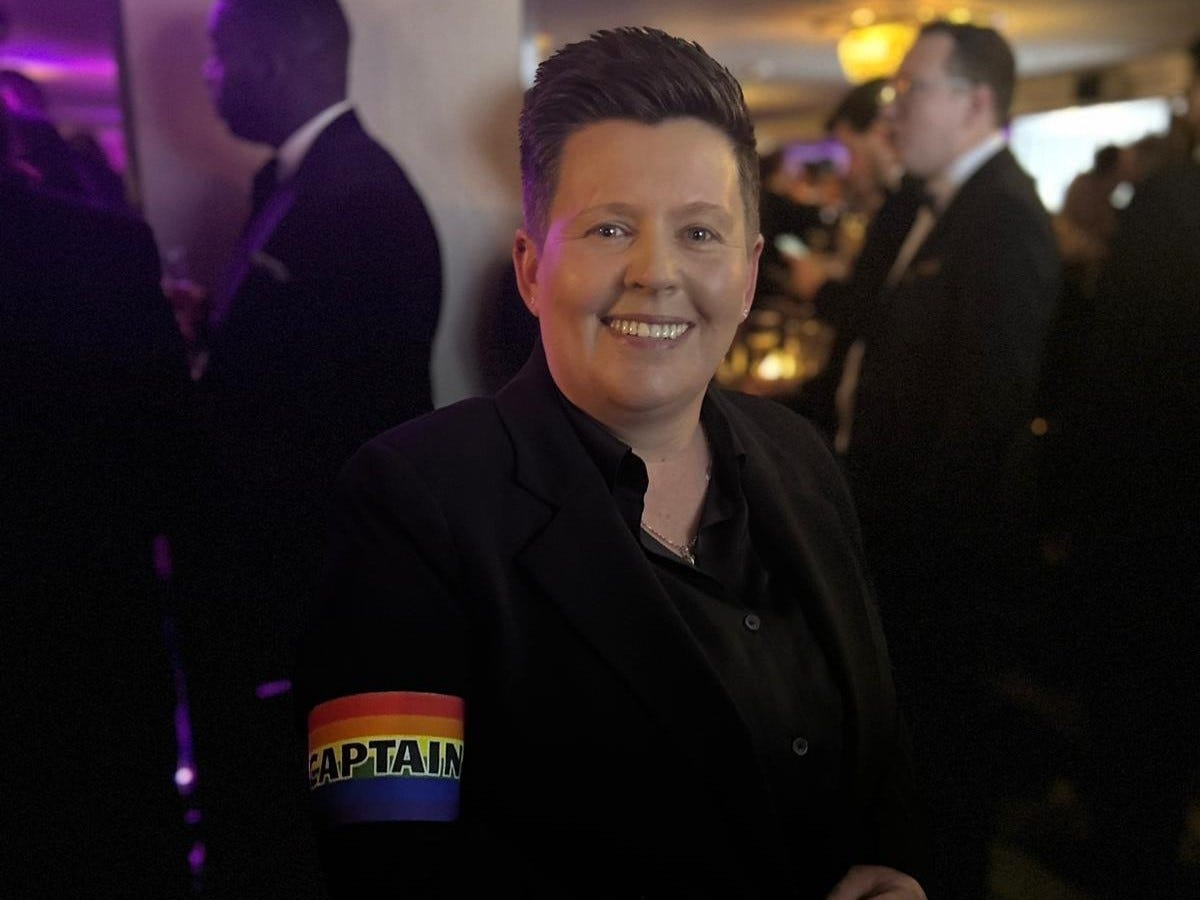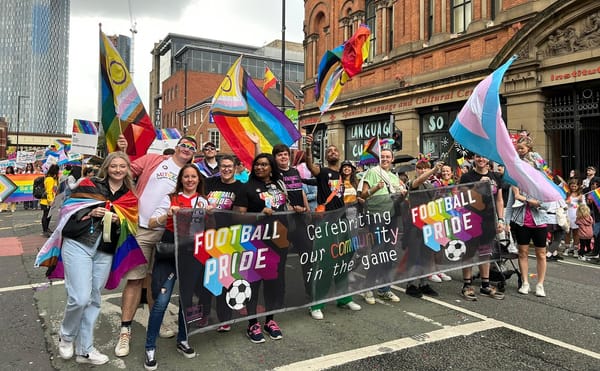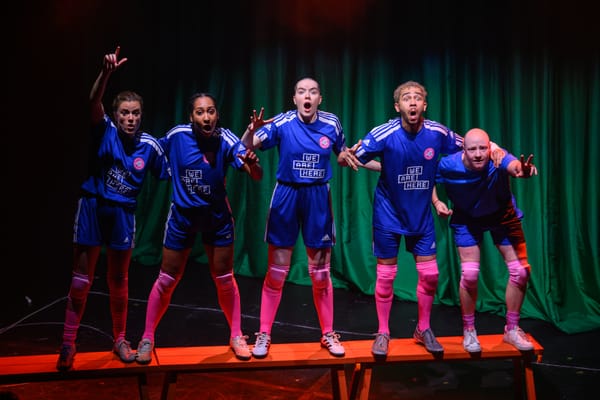The mission to eradicate the 'Chelsea rent boy' chant
Tracy Brown started the Chelsea Pride fan group with a goal. How close are we to achieving it?
Tracy is the chair of Chelsea Pride. She’s been a Chelsea fan for over 35 years and this year will mark 30 years since she came out as gay.
She’s been a supporter advisor to Chelsea’s board. And she was the first person to sit on the club’s fan forum as an LGBTQ+ representative. Put simply, she’s been at the heart of the fight to change football for years.
Here, she writes about the mission to eradicate the ‘Chelsea rent boy’ chant.
Enjoy, and if you like this, please consider sharing it with a friend.
Adam
By Tracy Brown
When I started Chelsea Pride, I wasn’t interested in starting small. The goal was to see an end to the ‘Chelsea rent boy’ chant.
The story behind the chant differs from person to person, but there are some facts that are pretty much agreed upon.
During the 1980s, the police found a Chelsea hooligan in bed with a rent boy, while doing a raid in Earl’s Court as part of an attempt to crack down on fans who provoked violence at matches. Earl’s Court was then known for male sex workers.
The Sun newspaper (if you can indeed call it that) covered the story and twisted it to fit the narrative they wanted. They used the scandal to sell newspapers, and didn’t care about the consequences. Sounds about right for them.
What then followed was decades of taunting. Opposition fans singing the Chelsea rent boy chant. Chelsea fans were mocked, demonised, insulted, and threatened while being accused of all being gay.
As a gay football fan, or even a player, hearing this sung by thousands of opposition fans, would you feel safe within a stadium? I would say no. I’ve heard every excuse from fans to why it’s not homophobic and it’s only banter. But what it comes down to is that those of us within the LGBTQ+ community see it as a homophobic insult. This has kept those within our community away from the game and, I believe, players themselves in the closet. We needed to change things.
The CPS wanted evidence of the personal impact this chant has. Not just on Chelsea fans, but all football fans who are part of our community. Working with The FA and the CPS, I – alongside my friend Chris Paouros who is co-chair of Proud Lilywhites – collected victim impact statements from football fans up and down the country.
We asked fans to explain how hearing that chant, and any other homophobic abuse, at games impacted their desire to go to watch football.
I worked hard to make sure we could present as many of those statements as possible to the FA and CPS. Then we held our breaths. After all, this was my big goal. I wanted fans to feel welcome and safe and seen, heard and, more importantly, accepted for who they are.
Then, in January 2022, the crown prosecution service confirmed that the term “rent boy” would be considered a homophobic slur and could amount to a hate crime. It made those who use the term liable to prosecution.
I cannot explain what this meant to me. For over 35 years, ever since I was a child, I’d been hearing this chant at Stamford Bridge. And now, thanks to the work of so many people – from Football v Homophobia, to Pride in Football, and all the rest – it was now against the law to sing it.

The FA now had to act. Years of me screaming that nothing was being done and the FA saying that its hands were tied because the chant wasn’t a crime were over.
It felt more like a small win than total victory. Yes, you could now prosecute those responsible, but really what we wanted was to educate people. To stop them before they chanted it at all.
The change in law has had a big effect, though. Working with the police and CPS on rent boy chant hate crimes, we have seen cases in court. The CPS has prosecuted people. Authorities have given out banning orders. The FA has informed all clubs of the power to pursue formal disciplinary action against them if supporters engage and use the now homophobic hate crime chant “rent boy”. Win, win, win.
But on the back of the World Cup in Qatar, there was an enormous increase in hate crimes within football. Homophobia was a large part of that. It was time to test how much progress had been made.
The FA issued its first fine for discriminatory chants. Wolves were ordered to pay £100,000 and issued with an action plan. It was a reminder that all clubs have a responsibility: to make sure spectators conduct themselves properly.
The fine was the first step in the right direction. However, what does a fine do to teach fans? How does a fine, paid by the club, stop the actions of fans? It doesn't hit the fans responsible in the pocket.
I want to see clubs sanctioned if they breach the rules, but this behaviour is from fans. The punishment should also impact the fans responsible. Education is always going to be key, but at the same time, we need to collectively look at ways of removing fans who believe hate is acceptable in football.
With the football season back underway, I hope this season is a season of change. A season of acceptance, a time to educate and learn. What I would love to see is all clubs working together in the same way, in a show of unity that hate has no place in the game.
For now, though, the fight goes on. I will continue working closely with Chelsea FC, governing bodies, the CPS, and police to make football what it should be: a game for everyone.



